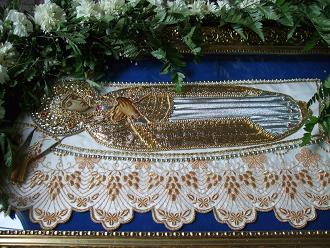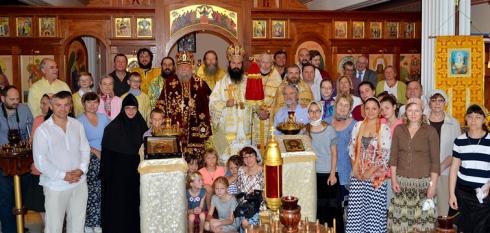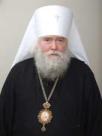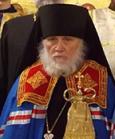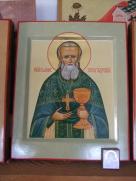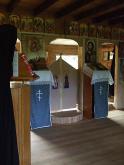Wednesday, August 26, 2015
The way of light and the way of darkness
The way of light
The way of light, then, is as follows. If any one desires to travel to the appointed place, he must be zealous in his works. The knowledge, therefore, which is given to us for the purpose of walking in this way, is the following. Thou shalt love Him that created thee: thou shalt glorify Him that redeemed thee from death. Thou shalt be simple in heart, and rich in spirit. Thou shalt not join thyself to those who walk in the way of death. Thou shalt hate doing what is unpleasing to God: thou shalt hate all hypocrisy. Thou shalt not forsake the commandments of the Lord. Thou shalt not exalt thyself, but shalt be of a lowly mind. Thou shalt not take glory to thyself. Thou shalt not take evil counsel against thy neighbour. Thou shalt not allow over-boldness to enter into thy soul. Thou shalt not commit fornication: thou shalt not commit adultery: thou shalt not be a corrupter of youth. Thou shalt not let the word of God issue from thy lips with any kind of impurity. Thou shalt not accept persons when thou reprovest any one for transgression. Thou shalt be meek: thou shalt be peaceable. Thou shalt tremble at the words which thou hearest. Thou shalt not be mindful of evil against thy brother. Thou shalt not be of doubtful mind as to whether a thing shall be or not. Thou shalt not take the name of the Lord in vain. Thou shalt love thy neighbour more than thine own soul. Thou shalt not slay the child by procuring abortion; nor, again, shalt thou destroy it after it is born. Thou shalt not withdraw thy hand from thy son, or from thy daughter, but from their infancy thou shalt teach them the fear of the Lord. Thou shalt not covet what is thy neighbour’s, nor shalt thou be avaricious. Thou shalt not be joined in soul with the haughty, but thou shalt be reckoned with the righteous and lowly. Receive thou as good things the trials which come upon thee. Thou shalt not be of double mind or of double tongue, for a double tongue is a snare of death. Thou shalt be subject to the Lord, and to [other] masters as the image of God, with modesty and fear. Thou shalt not issue orders with bitterness to thy maidservant or thy man-servant, who trust in the same [God ], lest thou shouldst not reverence that God who is above both; for He came to call men not according to their outward appearance, but according as the Spirit had prepared them. Thou shalt communicate in all things with thy neighbour; thou shalt not call things thine own; for if ye are partakers in common of things which are incorruptible, how much more [should you be] of those things which are corruptible! Thou shalt not be hasty with thy tongue, for the mouth is a snare of death. As far as possible, thou shalt be pure in thy soul. Do not be ready to stretch forth thy hands to take, whilst thou contractest them to give. Thou shalt love, as the apple of thine eye, every one that speaketh to thee the word of the Lord. Thou shalt remember the day of judgment, night and day. Thou shalt seek out every day the faces of the saints, either by word examining them, and going to exhort them, and meditating how to save a soul by the word, or by thy hands thou shalt labour for the redemption of thy sins. Thou shalt not hesitate to give, nor murmur when thou givest. “Give to every one that asketh thee,” and thou shalt know who is the good Recompenser of the reward. Thou shalt preserve what thou hast received [in charge], neither adding to it nor taking from it. To the last thou shalt hate the wicked [one]. Thou shalt judge righteously. Thou shalt not make a schism, but thou shalt pacify those that contend by bringing them together. Thou shalt confess thy sins. Thou shalt not go to prayer with an evil conscience. This is the way of light.
The way of darkness
But the way of darkness is crooked, and full of cursing; for it is the way of eternal death with punishment, in which way are the things that destroy the soul, viz., idolatry, over-confidence, the arrogance of power, hypocrisy, double-heartedness, adultery, murder, rapine, haughtiness, transgression, deceit, malice, self-sufficiency, poisoning, magic, avarice, want of the fear of God. [In this way, too,] are those who persecute the good, those who hate truth, those who love falsehood, those who know not the reward of righteousness, those who cleave not to that which is good, those who attend not with just judgment to the widow and orphan, those who watch not to the fear of God, [but incline] to wickedness, from whom meekness and patience are far off; persons who love vanity, follow after a reward, pity not the needy, labour not in aid of him who is overcome with toil; who are prone to evil-speaking, who know not Him that made them, who are murderers of children, destroyers of the workmanship of God; who turn away him that is in want, who oppress the afflicted, who are advocates of the rich, who are unjust judges of the poor, and who are in every respect transgressors.
Epistle of the Holy Apostle Barnabas, 1st century
Saturday, August 22, 2015
Family Convention at Mountain View (USA)
See the report from the Convention at Mountain View Russian Religious and Cultural Centre. Bishop Andronik headed the summer gathering. Metroplitan Demetrios of America (Church of the True Orthodox Christians of Greece) participated.
Bishop Sophrony of St Petersburg and parishioners in Russia sent a video greeting:
The family is a new Eden, planted by God.
The husband and wife are placed in this garden, in order to cultivate it.
“Keep thy tongue from evil,
and thy lips from speaking guile.
Turn away from evil and do good;
seek peace, and pursue it.”
Apostle Paul in his Epistles greets spouses as “the house church”. And in this small domestic church, the husband and wife help one another attain spiritual perfection, preparing for eternity.
Our life is a school of love. And the first lessons in that school we receive in our own family.
The family of the holy Royal Martyrs of Russia provide us with a magnificent example of that which resurrects all the best in man – which is true love in Christ.
“Father asks to pass on to everyone…that you should remember that the evil that is in the world, is going to become even more powerful, but evil does not conquer evil, rather, only love.”
(Letter from the Tsar family, Tobolsk, 1918)
Thursday, August 13, 2015
Abbess Alexandra: About two Church Issues (conference report). Part 2
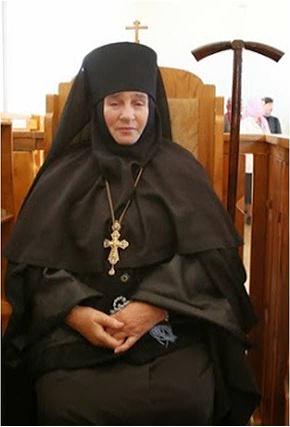 Part 2 of 2
Part 2 of 2
The second question concerns the proper concept of catholicity of the Church. I have met many worthy people among the first and second waves of Russian emigrants in America. However, in recent years there is a disturbing tendency present in our Russian Orthodox Church Abroad parishes. The parishioners think that the priest is simply a hired servant. They say: “We decide what to do - the priest is just supposed to serve”. Vladika Averky called this kind of parish “presbyterian”, because each parishioner is an “elder” [Tr. note: a presbyter] in spirit. A “presbyterian parish” holds the rights of the bishop, priest and layman equal. Accordingly, it believes that the parish can challenge the decisions of a Sobor or Synod. Unfortunately, this “presbyterian spirit” has gradually spread to all the parishes in America. During my last visit I had to avoid contact with my former close acquaintances, because it would be useless to argue. They are spreading presbyterianism to all areas of church life. All this stems from an incorrect understanding of the principle of conciliarity [Tr. note: sobornost] of the Church.
If we are Orthodox, we must abide by the decisions of the Council of Bishops and the Synod of our Church. It is not in our competence to challenge these decisions. If we do so, it means we are foolhardy enough to stand outside of the Church, outside of Orthodoxy.
Every bishop has his own character, his human qualities, and some shortcomings. It is possible for us to disagree a little with some of the bishops, perhaps even be disgruntled, but we should keep this to ourselves. We must not raise a rebellion within the Church due to personal ambitions. By doing so, we are destroying the Church, since, according to the canons, neither the laity, nor the priests steer the ship of the Church. This right is given to the bishops, who have received the grace of Christ through apostolic succession. The special cases in which it is necessary to express disagreement with the decisions of the Bishop (or Synod) are, as we know, defined by the canons.
Without the blessing of the Bishop, a priest has no right to serve. The bishop gives him an antimins, on which he can perform the service. In cases of necessity, the Bishop may confiscate the antimins. Then the priest can not serve; not to mention, to govern the Church. As much as all of us (priests, monastics and laity) would like to participate in solving church questions, we have no right to do so.
In Apostle Paul’s first letter to the Corinthians, by the Apostle Paul, we read:
“For as the body is one, and hath many members, and all the members of that one body, being many, are one body: So also is Christ.”
(1 Cor. 12:12).
In his sermons on this text, St. John Chrysostom writes:
For as the body and the head are one man, so he said that the Church and Christ are one. Wherefore also he placed Christ instead of the Church, giving that name to His body. “As then,” saith he, “our body is one thing though it be composed of many: so also in the Church we all are one thing. For though the Church be composed of many members, yet these many form one body.
[4]
Here I would like to offer a metaphor, and unfortunately I must resort to medical terminology. All the members of the Church are one body, and each member of the Church can be compared to an individual cell. It is obvious to anyone that a single call cannot control the organism. In the human body, in addition to the many useful cells, there is always a certain amount of unstable cells, which may form a tumour, which in turn can take over the entire body. Even if the tumor is removed, it can still happen that some of these cancer cells migrate through the lymphatic system and can cause a relapse destroying the body. Everyone knows that cancer cells need to be removed from the body for it to function normally.
Perhaps it is sinful and inappropriate to compare cancer cells with people who instigate rebellion within the Church. But in reality we unfortunately face a problem in the church when some priests assert that we have no conciliarity. In their opinion, conciliarity is disturbed by the fact that the ruling Bishop requires obedience of them. He demands that they be involved in their parishes, rather than travel about constantly from place to place as they want (to the Holy Land, Mount Athos, or other countries). They have spiritual children scattered around the world. However, in matters of spiritual guidance you need consistency, and a permanent, real-life contact with the flock, which is exactly what the ruling bishop requires of his priests. Otherwise the priests are playing at “being an elder”.
Among priests, there are also some who are engaged in politics. This is not at all a church-centred occupation. And if the bishop seeks to limit this kind of self-willed activity of priests in his diocese, they are ready to organise a rebellion in the Church. For these pastors conciliarity is the same as democracy. They would like to have a role in governing the Church. However, the canons establish that the Church is ruled by the bishops, the Synod and the Councils.
A proper understanding of catholicity of the Church is founded on the common effort of all the members of the Church (bishops, priesthood, monastics and laity) to preserve the Body of Christ in the spirit of love and harmony. Priests and lay people must communicate to the bishop (or if necessary even to the Synod) any problems or disputes, so that the Synod may make appropriate decisions. In no circumstances are the people of the church permitted to destroy the Body of Christ by divisive actions based on discontent.
On the question of conciliarity of the Church, I refer to the opinion of Metropolitan Filaret:
“Many misunderstand the concept of “catholicity”, and demand that lay people take part in the governance of the church, along with the bishops and clergy. In this regard, I would like to tell you briefly what is a true Sobor (Council).
In the book of Acts of the Apostles we read that there was a very serious discussion on whether to accept the pagans to Christianity directly. In other words, should they be baptised at once, or should they first be required to fulfill the law of Moses? When talking about this, the issue became so serious that even the apostles would not solve it themselves. They therefore came together to discuss it. In the book of Acts of the Apostles it says that “the apostles and elders came together for the consideration of this matter” (Acts 15:6). Now, naturally, you might ask: The apostles and presbyters, but what about the bishops? In fact, at the time when the Apostles served, their subordinates - bishops and priests - did not in essence differ much as to their powers and duties. However, when the apostles went to their Master in the better world, their place was taken by the bishops. That is the point at which the degree of bishops was separated from the priesthood, as being superior. But at the time of the Apostles, both the bishops and priests were subordinates, the assistants of the Apostles. We see that it is so, for example, from the place in the book of the Acts of the Apostles, which reads: “For Paul …. sent to Ephesus, and called the elders of the church.” (Acts 20:17) A little further on in the text, he says that the Apostle addressed them and said: “Take heed therefore unto yourselves, and to all the flock, over the which the Holy Ghost hath made you overseers, to feed the church of God, which he hath purchased with his own blood.” (Acts 20:28) So, the very same people are referred to as both “bishops” [overseers] and “elders” [presbyters] in the Book of Acts.
Gathering in Council, the Apostles also called their subordinates to the discussion of this important issue. That is how the question was discussed. When the Council ended, the decision statement began: [b]“The apostles and elders and brethren send greeting unto the brethren…”[/b] (Acts15:23). The brethren - that is, of course, the laity. It is clearly indicated that the discussion of the matter and decisions were made only by the Apostles and their subordinates - the members of the clergy. The lay people were probably present, but did not have a voice in this context. Possibly they took part in the statements of their views. Nevertheless, they did not have what is called a “decisive” voice. The resolution of the Council was still sent on behalf of all the brethren.
The Apostolic Council was the prototype of the Ecumenical Councils. Since there were no more Apostles, the Councils were headed by bishops. Members of the clergy were also present, and at some of the Ecumenical Councils there were even laymen. It is quite different with the Councils of Bishops, which meet not as rarely as Ecumenical Councils, and which do not make decisions on extraordinary questions, but rather gather regularly and continuously. The basic rule regarding the Council of Bishops states: The Council of Bishops should meet twice yearly, in order to discuss with each other any difficulties of questions encountered. There is not even a hint about laymen. On the contrary, the rule emphasizes that the bishops should only confer “with each other.” This is the way it always has been at Councils of Bishops.”
“Scripture says,” Every man a liar “, or in plain speech [Russian]: every man is a liar. This does not mean that we are all lying all the time - no! This means that no one person, no matter how wise, or holy if you like, or experienced, etc, can claim infallibility and rely on his own opinions. The higher the issues and questions, the more dangerous the mistakes. In matters of religion, the church, and moral teaching, no one can rely solely on himself. The Church has left us canons, laws and regulations as the basis upon which normal church life is built. No matter what ugliness in life will make its appearance, and no matter what difficulties we will have to face, we must keep this framework inviolate! This is why a bishop of the Orthodox Church proclaims his confession of faith, his episcopal promise, immediately before his consecration. It is a statement that he personally commits to being the custodian of all the conciliar rules and canons of the Holy Apostolic Church. He promises to be a guardian of them, even at threat of death.”
“The canons and rules of the Church are the spiritual foundation upon which spiritual life rests. No one can abandon this foundation without immediately running into mistakes and errors. Once St. Seraphim of Sarov said to one of the Old Believers, who came to him and tried to develop his thoughts (the Elder, as always, told him with love, but at the same time powerfully and strictly): “Leave your nonsense! The ship of Christ’s Church is sailing on the waves of the sea of life, and they cast Her about. She makes the voyage with great difficulty, yet you want to sail the ocean in the little boat of your own wise thoughts - this is madness!”. [5]
Abbess Alexandra
[4] St. John Chrysostom. Collected Works. Homily XXX on Corinthians.
[5] St. Filaret Voznesensky. Sermon “Catholicity and sobornost.”
Monday, August 10, 2015
Abbess Alexandra: About two Church Issues (conference report). Part 1
 Part 1 of 2
Part 1 of 2
Today I would like to raise some questions concerning the life of the Church. It may seem strange that I say this: These are simple truisms. However, these topics are some that constantly worry us (i.e. members of the Orthodox Church, the sisters of our monastery, and myself). Therefore I cannot avoid speaking about this. The first question concerns Holy Communion.
It happens that people come to our monastery from the Kiev or Moscow Patriarchate. What do we do if they wish to partake of the Holy Mysteries? We know that in Russia, there are very few parishes of the Church Abroad. Many of our relatives and friends go to the Moscow Patriarchate, because they have nowhere else to go. They understand where the truth is, but are unable to go to any parish of the Church Abroad.
There is another type of people who go to the Moscow Patriarchate, and do not particularly think about any differences we might have with it. For them, the Church is simply a tribute to tradition. This problem is not new. Already in 1979, Metropolitan Filaret stated well about a similar situation:
“What does it mean that many of the “orthodox” are indifferent to which Church they attend? It means simply that the truth is not dear to people. That is why they do not particularly think about these things. “They serve in the same way, everything is the same - why complicate matters unnecessarily?” Or, as father archpriest John Storozhev in Harbin (the last spiritual father of the Royal Family), one of the best pastors in the diaspora, used to say with bitter irony: “The bells ring, the priests serve, they sing well - what else do we need?”. And then they add that familiar cliche: “After all, God is one!” … ” [1]
In a letter to an Abbess of one of our monasteries abroad which is visited by people of different jurisdictions, Metropolitan Filaret offers his solution:
“It seems clear to me that there can only be correct “missionary work” in the monastery when such visitors are allowed into the Church; however, admitted to the Mysteries with one condition: If they partake of the Mysteries here, they must abandon “the Mysteries” of the Churches of other jurisdictions.Otherwise - what will happen?! It will seem to them that everything is in order in those churches, and that they do not need to change or correct anything. By allowing them to receive the Mysteries without requiring unity and consistency in this regard, we would be confirming even more that they are completely correct, and that their way is a true and correct way. ” [2]
Vladyka Filaret’s stand is the position of our Church - there is no doubt about this. However, in practice it often happens that priests act differently. Whether we like it or not, in such cases human attachments play a role. For example, relatives or friends of the priest may come from the MP, and it is difficult to deny them the Mysteries. Sometimes people who are far from the Church come, while finding themselves in a difficult situation in life. There is a desire to help, rather than push a person away. For such a person, the differences between the Russian Orthodox Church Abroad and the MP recede, not only to the secondary, but even the tenth level in comparison with the experiences of his broken life. Such a man has no desire to delve into religious matters. Therefore, the question of receiving Communion or not is approached on an individual basis, depending on the priest and the circumstances. Maybe some of you in the audience can share your experiences in addressing such situations.
Today, the situation is further complicated for the faithful, in that the Church is used for political purposes. Here is one example:
“On February 12th, during the truce between the government and the opposition organization “Ukrainian National Council” (chairman Igor Druz), an initiative in support of the “MVD Berkut” special forces was carried out. This division is protecting the government quarter from Grushevsky Street from the protesters at the Euromaidan. Representatives of “political orthodoxy” brought Archpriest Alexei Yefimov, rector of the Church of Saint Anthony and Theodosius of Kiev (of the Vasilkov diocese of the Ukrainian Orthodox Church (Moscow Patriarchate), in order to serve a moleben service, and commune the Special Forces soldiers with the Blessed Sacrament (of the the body and blood of Christ).” [3 ]
At present, there is a war in the Ukraine. Among the soldiers there are also priests who serve services, and, if necessary - baptise, administer communion, and bury those who have died. Again the question arises: To whom can the priest administer the Mysteries (perhaps in conditions of mortal danger)? Indeed, among those who are fighting there are members of our Church, as well as Greek Catholics, people of the Ukrainian Patriarchate, people from the Moscow Patriarchate, and people far from the Church. How do we avoid breaking the commandment of love in such a situation?
All the Holy Mysteries (and especially so, Holy Communion) - are a matter of conscience for each Orthodox person. This is when we speak of lay people who go to various churches, while not making any effort to sort out where the truth is. Yet, even among monastics there are some who, change their jurisdiction under the influence of external circumstances. They do this while knowing full well where the truth is. I do not want to condemn anybody: this is a matter of each person’s conscience..
In the Holy Land, I came across old nuns who have lived for a long time in the monasteries abroad. After these monasteries joined the Moscow Patriarchate, they came under its omophorion. They do not support this union, but for various reasons can not leave the monastery where they have lived for so long. To leave a monastery for an elderly person is not so simple. Old age and illnesses object. Also, if they attempt to move to another country for permanent residence they have difficulties obtaining the necessary documents. In such cases, elderly persons tend to lose any social benefits they might have held previously. Many do not have the heart to give up everything and live in a foreign country, leaving behind their native monastery and relatives. Therefore, many of the older nuns have made peace with the lies, they go to the service and partake of Holy Communion in the Moscow Patriarchate. As they told me, during the commemoration of Patriarch Kirill, they stop up their inner spiritual ears. They say: “We do not pray for the patriarch”. Nevertheless, we understand that receiving Holy Communion in the Moscow Patriarchate makes all the communicants united in spirit, whether they like it or not.
Some of the nuns, who have had no opportunity to leave after the union with the MP, continue to live in their monastery and attend the services, but do not commune in the Moscow Patriarchate. For Holy Communion they go to the Church Abroad, whenever the opportunity presents itself.
For a long time I thought that only the sacraments separated us from the Moscow Patriarchate. Therefore I assumed that it was permissible to pray in the churches of the MP, in the case when it is not possible to attend a service in a parish of the Church Abroad. I have been on pilgrimages to the holy places of Moscow, St. Petersburg and Kiev. In Moscow, for example, I greatly enjoyed visiting the Donskoy, Danilov, and Novo-Spassky monasteries, as well as the Trinity-Sergius Lavra. If I visited on Sundays or feast days I would go to these monasteries for services. Of course, I did not take communion, but simply prayed. However, there was an event that showed me my error.
At that time, our monastery moved to the Ukraine, and we had already built our new church. I needed to go to Kiev, to the Kiev-Pechersk Lavra in order to buy church vessels. I asked one of our priests to accompany me. We left on a Friday and were due to return Sunday evening. We stayed with friends. On Saturday, while we were getting ready to leave, I asked the father why he did not put on a Cross. I was intending to attend the service at the Lavra. Batiushka answered that he had all the necessary books with him, and was going to pray somewhere near the caves. “I do not want to impose my views on you - it is your business. But for me, praying together in a church of the Moscow Patriarchate is impossible. This is not my personal opinion - this is the position of our church, ” the priest explained to me. I was embarrassed and ashamed of my lack of understanding. We prayed on the banks of the Dnieper. On that wonderful evening, I realised my long-held misconception. Everything fell into place. I realised that we are not able to attend the services in a church of the Moscow Patriarchate or any other jurisdiction, because we can not engage with them in common prayer, for this is a mystery in front of God.
I remember an incident that occurred with one of our priests in America. He was a priest of Jewish origin. His name was Father Elias. In his old age, he had become very frail, and his Jewish relatives put him in a Jewish nursing home. Father Elias was starting to lose his memory and sometimes did not recognize his loved ones. Before Christmas one of our priests, father Peter, who knew this father Elias, decided to visit him and commune him with the Holy Mysteries. Father Elias was very happy for father Peter’s arrival, and they spoke together very nicely. “Now, father Elias, why don’t you confess, and I will give you the Holy Mysteries,” - said father Peter. On hearing this proposal, father Elias became alarmed and answered: “I am very glad that you came to see me, but I cannot receive Holy Communion. I am a priest of the Church Abroad, and I do not know which Church you are from.” “But you know me - I am father Peter, I am also of the Church Abroad,” father Peter tried to convince his companion. “Yes, I remember you, but I do not know which church you are from. I have to consult with Vladyka Filaret,” continued father Elias. By that time, Vladyka Filaret had died, and Vladyka Vitaly was Metropolitan. Nevertheless, father Elias went to the telephone and dialed a number, and then began to speak.
Father Peter, who witnessed this wonderful conversation, told me that he had goose bumps when he saw firsthand that father Elias received instructions and answers to his questions from Vladyka Filaret. Father Elias prayed for Vladyka Filaret as living, and to him the Bishop was still alive. This elderly priest, not putting any trust in himself, took the blessing of his abba, connecting with him in spirit and in truth. And how could his soul, so full of humility not receive a blessing to receive the Holy Mysteries? “It was a miracle!” exclaimed father Peter when recalling the incident. When father Elias ended the conversation, he hung up and said cheerfully: “Metropolitan Filaret blessed. Let’s begin the Mystery (of Communion).”
This unusual case illustrates what should be the correct attitude to the sacraments of confession and communion. In all matters of contention we need to ask the Bishop’s blessing.
Abbess Alexandra
Part 2 to follow
[1] St. Filaret Voznesensky. Letter to an Abbess. November 26 / December 9, 1979
[2] St. Filaret Voznesensky. Letter to an Abbess. November 26 / December 9, 1979
[3] Religion in Ukraine, of 02.13.2014
Sunday, August 9, 2015
Presentation at the VI Annual Conference “The Paths of ROCA in the modern world.”
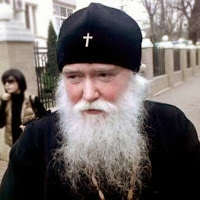 The internal organisation of Christians at the present time is the most central issue in the life of the Church today - it even becomes a question of the church’s survival. Our unity has been strengthened, but in exchange for this, we see and experience centrifugal forces which oppose unity. This is happening to such a degree that this force is ready to literally tear us to pieces at any time, and permanently at that.
The internal organisation of Christians at the present time is the most central issue in the life of the Church today - it even becomes a question of the church’s survival. Our unity has been strengthened, but in exchange for this, we see and experience centrifugal forces which oppose unity. This is happening to such a degree that this force is ready to literally tear us to pieces at any time, and permanently at that.
What are the elements driving this separation today? Basically, these are quite insignificant things: differing views on politics; superficial ecclesiological disputes; power ambitions of certain people; concerted work of our enemies; stubbornness of influential groupings (mini-sects within, which are constantly engaged in hindering and obstructing the action of the clerical hierarchy); the conscious or unconscious ‘name-of-God-worshiping’ heresy, (behind which is opposition to any clerical hierarchy, a kind of “Orthodox anarchism”). All this exists on the basis of misunderstanding the dogma of Church unity. This is what is evident on the surface. Each one of these issues can be examined further in detail, but this is not the core issue, the most important thing. Instead, I will try to point out what we can do to oppose these generally destructive trends. Of course, the One Who is capable of defeating evil and uniting all genuine Christians is, first and foremost, Christ the Saviour Himself, and thereafter, the Orthodox faith, hope and love. And also their mother – Wisdom, or in other words, sobriety in everything. What is demanded of us is our worthiness of this help from on high.
The early Christians – as is well known – lived completely independently of civil authorities – for them there did not exist frameworks of state and national borders. They lived as self-contained communities, with their inner life and laws. They had a clear-cut division between what was “of God” and what was “of Caesar”. The fact that the Lord did not come as an earthly king – as everyone had hoped – characterized their entire lives. There is not even a hint that early Christians were somehow attracted by worldly civil power. (This is in stark contrast to the majority of the Jewish people, who were anticipating their political leader, and to whom the Christians were – possibly – some kind of traitors and betrayers). It can be assumed that this is one of the important reasons why the Jewish people did not follow Christ. Christians did not even seek to influence the civil power. Possibly, the words of the Apostle Paul: “Let every soul be subject unto the higher powers. For there is no power but of God: the powers that be are ordained of God.” (Rom. 13:1) dictated, partly, an attitude of indifference and ascribing absolutely no significance to any civil authorities. For indeed, worldly power was something to which the early Christians were totally indifferent. They preached the Resurrection of Christ – regardless of class, social and national differences. They expanded their community up to practically all the then-existing known national borders, while at the same time, they were not troubled at all about the civil and political structure of the countries in whose territories they lived.
However, the early Christians did have their own internal discipline and organization. The people of the Church were ruled by bishops and priests. Even so their clerical rule was basically limited to preaching and spiritual supervision. Overseeing everything were the Apostles and, thereafter – the first bishops. They resolved difficult questions at general meetings, that is, through common consent, or – as they say nowadays – conciliarly. Those who lived in prosperity, raised money for those who were poor. They did not have that power-structure which later was invented by the [Roman] Catholics, making the Pope a civil ruler, attempting to subdue all the other Christians and ordinary citizens. We can say that the interest in purely civil “levers of power” first appeared only in the Roman Church, and – possibly – that interest played a negative role in the process of the Papacy’s falling away from the fullness of the Church.
In the IV century, the state power became Christian. This was a development Jesus actually never called for, and – one may say – He did not even bless by His example, as he renounced earthly lordship. As a result, many people who were far removed from Christianity entered the Church. Under these conditions, the genuine Church – in its essence – was forced to flee into the desert, forming monasteries around Spirit-bearing ascetics. From then on, monasteries essentially replaced the communities of the early Christians. Just as the groups of early Christians were headed by Bishops, the monasteries were headed by an abbot, who was not always even of clerical rank, who had his assistants, responsible for the various aspects of monastic life. Monasteries – like the early Christians – did not aspire to civil power – on the contrary, their very existence was caused by a departure, a flight from this. Their household was of a closed-type and – often – was completely independent of other economic structures. The monasteries had strict discipline and “obedience in labour”, inasmuch as they had to provide for themselves, for their sustenance and property. Property was in fact something they practically did not have, either in the form of dedicated collective property or “private property”. In the same way, these were not a reality with the early Christians because of the persecutions. Nevertheless, civil authorities who considered themselves Christian, began to “patronise” the monasteries. As a result, for example, in Russia, this patronising made the monasteries completely dependent on civil power. In our country [Russia], the same process occurred as for example in the Holy Land or on Mount Athos – monastery estates were built with the help of civil authorities, and were later populated by monastics. Churches (and the Christian communities around them) were built in the same manner. However, this was already very different from the early Christian community. We see – no matter how zealously genuine ascetics sought to withdraw from the world, the world, as a rule, overtook them.
Throughout the era of Orthodox emperors, or in other words – the Constantine Era – we see a kind of confrontation between the secular and spiritual forces. For the Church, the situation was often unbearable in this – however sincere – secular embrace. On the other hand, many secular citizens inhabiting the empire often resented “the yoke of the churchmen” and were not well disposed to the Church at all.
* * *
In the Soviet Union, the traditional original Christian communities were revived in the form of the Catacomb Church. The structure was very much like that of the early Christian communities of the time of the persecution by the Roman authorities. Indeed, persecutions in the Soviet Union were incomparably more violent than the persecutions of the early Christians. The catacomb communities in Russia had practically no contact with one another. They often did not even know whether there existed any bishops of the same faith, despite constant and intense searches for them. In practice the catacomb communities lived in complete isolation. They gathered together quite rarely, and only for common prayer. This isolation however, cemented the ranks of the people and made the community – in spite of everything – viable and active. The catacomb Christians exhibited great self-sacrifice, and collected significant sums of money (by the standards of that time). In practice however, they were unable to use these resources, because of the ban on private property in the USSR, and because of the full control by the state over all other property. I know of cases where catacomb Christians helped monasteries of the Moscow Patriarchate, only because they did not know how to utilize the monies and food that were collected; at the same time they categorically refused to help the Soviet government in any form whatsoever. At that time it was a matter of survival for the Christians, and they had no possibility of even thinking about missionary work and expansion. Unfortunately, by the end of persecutions in the 1980s, only a few remnants of catacomb communities survived, without any administration or organization. Some of them submitted to the Synod of Bishops of ROCA, as the only canonical church administrative structure that had been preserved until that time.
* * *
In the post-Soviet space of the Russian Federation and in other newly formed states, the Moscow Patriarchate has aimed to build a Byzantine-Soviet model of Church life, in a – so called – loyal state. In actual fact, it was impossible to build anything else whilst applying the same methods of the Soviet period. As a consequence, this structure has resulted in an all-powerful elite, and the mass of people without any kind of rights as the foundation. Internally, there exist popular initiatives within the Moscow Patriarchate. Almost all of them however, are of a sectarian nature (for example - morbid opposition to civil ID numbers, elder-worship, deification of the Tsar, Orthodox Stalinism and other types of political Orthodoxy, etc.). One exception is, perhaps, the struggle against ecumenism. However, unfortunately this is not organized in any specific movement. Perhaps at some time in the future, there will arise a common striving within the MP that would lead to a healthy recovery of that structure. However, even in the best case scenario, this is an issue for the future.
* * *
What are we to do? To provide a universal recipe is difficult, but one thing is clear: We all need closer communication - in all aspects, from prayer, to mission, to social and work activities. We should not to be frightened that in practical terms any “coming closer ” would be a threat to some worsening of relationships. However, any mutual estrangement – with a temporal illusion of pacification in our relationship - will finally result, upon closer contact, produce sudden contradictions that ultimately turn out to be incompatible. Past experience testifies to this. We do not live in isolation and nowadays communications are well-developed. We are free, and these days, in essence, we are not dependent on anyone in this world. We have all the conditions to lead a Christian life, and we are not restricted in this by anything external. But we, for some unknown reason, have chosen voluntary estrangement from one another. What is this? The historical -spiritual chain: Christ – to early Christian communities – to monasteries – to Catacomb Christians in the USSR – to ??? – must continue. We should not now attach any great significance to the civil powers than they deserve. In our day politics take up an unnaturally large space in the lives of people. It is clear that that the exorbitant interest in it is artificially devised in order to distract people with externals, and to lead them away from inner life. At present this problem is only within ourselves. It is quite obvious that our faithful children should not be avoiding one another, and fearing to communicate with each other. On the contrary, at the present time, only close communication is the true way to identify any falsehood and strengthen our genuine unity in Christ.
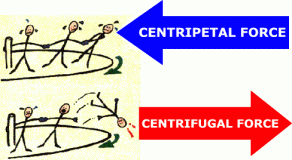 Editor’s note: Interestingly, the centrifugal force is actually the force perceived to influence an object when it is literally “forced” to move in a circle, rather than in a straight line (as it would do if undisturbed) - this centrifugal force works to move it out of the circular orbit.
Editor’s note: Interestingly, the centrifugal force is actually the force perceived to influence an object when it is literally “forced” to move in a circle, rather than in a straight line (as it would do if undisturbed) - this centrifugal force works to move it out of the circular orbit.
In analogy to the spiritual life, this is a person who, due to a greater estrangement from both Christ (who is at the centre of everything in the Church, towards Whom everything gravitates and Who keeps everything in order), and from his brothers, prefers moving on a straight line (individually, according to his own desires/understanding), rather than in a circle (in obedience to Christ, to his superiors and brothers). The centrifugal force exerts greater influence at the periphery of such circular movement, where the overall power of individual, straight-line movement is greater than the centripetal, attractive force (drawing an object towards the centre).
The closer a person is to the centre (Christ), the greater is the centripetal force keeping him within the Church. Conversely, the further a person moves away from Christ and away from personal obedience to his brothers and Christ Himself, the stronger is the force that appears to be pushing him out of the Church.
May our Lord preserve us from this, and allow us to abide in love and obedience, keeping us in His Holy Body, the Church.
Wednesday, August 5, 2015
All labor, every square inch of ground, every grain of wheat… A Prophecy from 15th Century
… Each person will be registered; not only every facet of his affairs and his life, but his every word, every movement of his mental faculties will be under constant surveillance so that he will lose the habit of thinking for himself out of fear that the expression on his face might involuntarily reflect something incompatible with the authority of the world ruler, i.e., Antichrist. Everyone will wear “stone masks.” All labor, every square inch of ground, every grain of wheat will be under the authority of Antichrist…
Excerpt from the book: Reflections of a Humble Heart: A 15th-century text on the spiritual life
“Brother, I have no past…..” Thus begins a quiet meditation (introduced by a stunning prophecy from the Monk Basil, who collected the work) on what it means to live as a Christian. No scare tactics, no heavy-handed asceticism are to be found here, in reflections just as suited to a busy worker in the marketplace as to a desert monk. Everything leads to the words with which the manuscript breaks off: “Thou art eternal God, Holy Spirit, and we — by Thy love will live for eternity, while all else is but a dream, a river flowing by.”
Buy from Saint John of Kronstadt Press (Item# 3160)
More about the book
The text was found among Byzantine manuscripts in the Vatican library. The name of the elder is not known to us. Either the monk Basil, who recorded what the elder’s words, assumed that everyone knew who he was talking about, or his name was mentioned in earlier notes that have been lost. It is supposed that the elder was a renowned ascetic of one of the monasteries near Constantinople in the early 15th century.
The text was adapted and translated into Russian by (old ROCOR) Archimandrite Ambrose Pogodin in Pravoslavny Put’, 1999, Jordanville. English translation from the Russian by Mary Mansur, published by Nikodemos Orthodox Publications Society, New York.
…He spoke to us of how greatly the Lord desires our salvation, and how He has done everything necessary for this. His mercy and His grace-filled aid is measureless and is extended toward sinners and righteous alike, requiring so little on our part for the salvation of our souls. The banquet table of faith is laden to capacity, but people are careless concerning the salvation of their souls and they do not want to hear the summons of the Lord. The very words, “salvation” and “to save oneself,” imply some grave danger – we associate these words with an understanding of some great danger or tragedy; for example, “saved from fire,” “saved from perishing,” “saved during an enemy attack,” etc. – and they should motivate a person to be extremely vigilant in life and to have a fervent desire to be saved; they should arouse faith in the Savior and love for Him. Meanwhile, people have no concern for this, considering that this earthly world, visible to our eyes, is the only reality there is. They do not know that it is the spiritual world which is the reality and essence of things. Thus, the entire earthly, material world – encompassed by notions of height, width, depth, and weight – exist in the realm of time, which brings all things to destruction, because time is the servant of death. Time began with man’s fall into sin and it will exist only until the end of the history of mortal humanity. By contrast, the spiritual world exists outside these limitations, outside these bonds and measures; it is infinitely wealthy, eternal, and indestructible. That is why in spirituality there exists Rerum Natura [”The Nature of Things”].
The blessed elder also said that terrible times were approaching. The enemies of our Lord Jesus Christ will take captive our earth and the Great Church* (Hagia Sophia) will cease to be the temple of God. Great tragedies will overtake the land of the Romans,* (The Byzantines called themselves “the Romans”), and by God’s great judgment it will cease to exist. People will die, cities will perish, even whole nations will perish, because there is nothing eternal under the sun except the human soul, which is created in the image and likeness of the eternal God. Do not look for help from Western Christians, expecting that they will take up arms in defense of the common Christian heritage. Do not expect this. Because the Western Christians are not Christians; they are pagans. Even we Orthodox have a lot of things that are pagan.
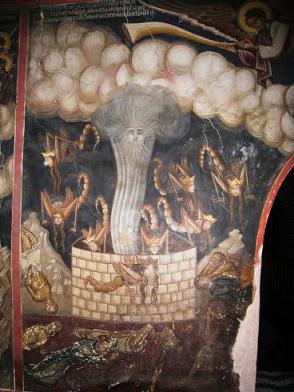 Brother, do not be grieved at my words, but examine your soul. Just look how many idols it harbors: Mercury – the god of cupidity, Aphrodite – the goddess of concupiscence, Ares – the god of wrath, etc., and in the center, Zeus – you with your self-love and self-indulgence. Yes, brother, we have much that is pagan, because we Orthodox are sinners, both as individuals and as a people. However, we are pagans on the surface, while in the depths of our souls we are Christian, because in our humility we have Christ in our hearts. And therefore, in spite of our sins, “in our humility the Lord remembered us.” Western peoples are Christian on the surface, but in their hearts, in their souls, they are pagan. We Orthodox grieve that we have idols living in our souls, and in humility we fall prostrate before Christ, desiring with our whole heart to belong to Him. In the case of Westerners, however, Christianity is like a thin gilding over copper; and the rest is wholly pagan, because within their souls they bow down before their idols and these idols reign over them. They are proud, and Christ does not dwell in their hearts. For this reason, we Orthodox are truly pagans – on the surface – but deep within we are Christians; while the Western Latins are Christians on the surface but pagans underneath. Therefore, do not expect that they will help us. We Orthodox are strangers to them.
Brother, do not be grieved at my words, but examine your soul. Just look how many idols it harbors: Mercury – the god of cupidity, Aphrodite – the goddess of concupiscence, Ares – the god of wrath, etc., and in the center, Zeus – you with your self-love and self-indulgence. Yes, brother, we have much that is pagan, because we Orthodox are sinners, both as individuals and as a people. However, we are pagans on the surface, while in the depths of our souls we are Christian, because in our humility we have Christ in our hearts. And therefore, in spite of our sins, “in our humility the Lord remembered us.” Western peoples are Christian on the surface, but in their hearts, in their souls, they are pagan. We Orthodox grieve that we have idols living in our souls, and in humility we fall prostrate before Christ, desiring with our whole heart to belong to Him. In the case of Westerners, however, Christianity is like a thin gilding over copper; and the rest is wholly pagan, because within their souls they bow down before their idols and these idols reign over them. They are proud, and Christ does not dwell in their hearts. For this reason, we Orthodox are truly pagans – on the surface – but deep within we are Christians; while the Western Latins are Christians on the surface but pagans underneath. Therefore, do not expect that they will help us. We Orthodox are strangers to them.
Of course, in every nation there are good and humble people who bear Christ in their hearts and their way of life. But there is nothing that can equal or that can even be compared to the grace of Orthodoxy. This is a soul-saving faith; this is a faith that leads us to humility; this is a faith that elevates us to Christ; this is a joyous faith, a faith that encompasses all peoples, a faith of indescribable beauty, a divine faith! O Orthodox Christian, be grateful to God that you are Orthodox! Oh, how happy we Orthodox are that we are Orthodox!
But this is not yet the end of the world. The end of the world will come later, and the time of the coming of the end of the world lies in God’s hands– and also in the hands of men. When human evil reaches its apogee, God will send His sickle to harvest the world. While together with evil men, righteous men still live on this earth, and while the Church of Christ still stands, not having defiled her garments (Rev. 3:4), evil in the world has no power to fully mature. But when no righteous men remain on the earth, when the ocean of evil floods the whole world, then the end of the world will come; it will be burned up and disappear into oblivion, that it might be reborn a new and perfect world in which righteousness dwells (II Peter 3:9-12. At the coming of the end of the world, all the tribulations that the world and people have experienced until then cannot compare with those tribulations that will come upon them at this time. A time of woe will overtake the whole world: men will hate one another, they will fear one another, they will not trust one another; tribulations will give way to greater tribulations, fear – to greater fear, danger – to greater danger, pain – to greater pain, grief – to greater grief. But people will not come to their senses; they will not flee to God, Who is able to save them. On the contrary, people will grow callous, and all spiritual life will wither. Man will become so full of malice, so degraded as a result of being goaded and ruled over by base passions, so hard-hearted, darkened, and utterly consumed by the sole concern of how to survive, that for spiritual life he will have neither the will nor any place in his heart. Nor will there remain any spiritual guides, because these, too, will follow the ways of the world. God’s temples will become either empty or destroyed or spiritually defiled by unworthy pastors.
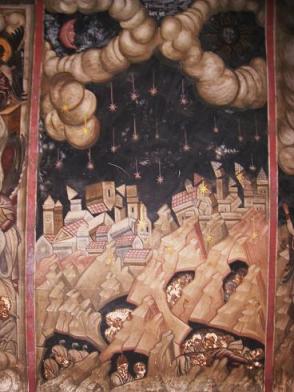 At the very height of these tribulations and chaos in the world, the Antichrist will appear. He will come in the guise of a peacemaker, a good and wise leader who can bring the world to order. In reality, however, he will be an enemy to all, a despiser of all that is good, a tyrant and evil-doer, a destroyer of everything, the likes of whom the world has never seen and will never see. Each person will be registered; not only every facet of his affairs and his life, but every word, every movement of his mental faculties will be under constant surveillance so that he will lose the habit of thinking for himself out of fear that the expression on his face might involuntarily reflect something incompatible with the authority of the world ruler, i.e., Antichrist. Everyone will wear “stone masks.” All labor, every square inch of ground, every grain of wheat will be under the authority of Antichrist. There will be calamities in nature: oppressive heat waves will alternate with periods of freezing cold, drought with floods; horrendous tornados and hurricanes will wreak frightful destruction; volcanic eruptions, earthquakes, and diseases among people, animals, and plants will be so dreadful as to make people despair. The earth, no longer blessed with bearing fruit, will be stricken with terrible famine and become utterly impoverished. And only those who have accepted the mark of the Beast, i.e., Satan, will be allowed to exist for a time, although in the most servile and base conditions of utter penury and contempt for the human dignity that man received from his Creator. Everything will be filled with Antichrist: the earth, the sea, the air. Everything will be done with the single purpose of eliminating totally the name of Christ from the heart of man. In truth, this will be a hellish kingdom on earth. There will remain very few of God’s people. There will be terrible tribulations, a time of intense agony not only on earth but throughout the entire universe, for they are joined in one plan of creation, and the whole universe is to perish that afterwards it might be clothed in incorruption, in indestructibility, in eternity, according to the words of the Apostle: This corruptible must put on incorruption(1Cor. 15:53). You heard the words of our Saviour: Immediately after the tribulation of those days shall the sun be darkened, and the moon shall not give her light, and the stars shall fall from heaven, and the powers of the heavens shall be shaken (Matt. 24:29). And the prophet says: The sun shall be turned into darkness and the moon into blood, before the great and glorious day of the Lord come (Joel 2:31). Another prophet says: For the stars in heaven, and Orion, and all the host of heaven, shall not give their light; and it shall be dark at sunrise, and the moon shall not give her light (Is. 13:10). And further:
At the very height of these tribulations and chaos in the world, the Antichrist will appear. He will come in the guise of a peacemaker, a good and wise leader who can bring the world to order. In reality, however, he will be an enemy to all, a despiser of all that is good, a tyrant and evil-doer, a destroyer of everything, the likes of whom the world has never seen and will never see. Each person will be registered; not only every facet of his affairs and his life, but every word, every movement of his mental faculties will be under constant surveillance so that he will lose the habit of thinking for himself out of fear that the expression on his face might involuntarily reflect something incompatible with the authority of the world ruler, i.e., Antichrist. Everyone will wear “stone masks.” All labor, every square inch of ground, every grain of wheat will be under the authority of Antichrist. There will be calamities in nature: oppressive heat waves will alternate with periods of freezing cold, drought with floods; horrendous tornados and hurricanes will wreak frightful destruction; volcanic eruptions, earthquakes, and diseases among people, animals, and plants will be so dreadful as to make people despair. The earth, no longer blessed with bearing fruit, will be stricken with terrible famine and become utterly impoverished. And only those who have accepted the mark of the Beast, i.e., Satan, will be allowed to exist for a time, although in the most servile and base conditions of utter penury and contempt for the human dignity that man received from his Creator. Everything will be filled with Antichrist: the earth, the sea, the air. Everything will be done with the single purpose of eliminating totally the name of Christ from the heart of man. In truth, this will be a hellish kingdom on earth. There will remain very few of God’s people. There will be terrible tribulations, a time of intense agony not only on earth but throughout the entire universe, for they are joined in one plan of creation, and the whole universe is to perish that afterwards it might be clothed in incorruption, in indestructibility, in eternity, according to the words of the Apostle: This corruptible must put on incorruption(1Cor. 15:53). You heard the words of our Saviour: Immediately after the tribulation of those days shall the sun be darkened, and the moon shall not give her light, and the stars shall fall from heaven, and the powers of the heavens shall be shaken (Matt. 24:29). And the prophet says: The sun shall be turned into darkness and the moon into blood, before the great and glorious day of the Lord come (Joel 2:31). Another prophet says: For the stars in heaven, and Orion, and all the host of heaven, shall not give their light; and it shall be dark at sunrise, and the moon shall not give her light (Is. 13:10). And further:
Therefore a curse shall consume the earth, because the inhabitants thereof have sinned: therefore the dwellers in the earth shall be poor, and few men shall be left…all the mirth of the land has ceased, all the mirth of the land has departed…the water of the sea shall be troubled…the foundations of the earth shall be shaken, the earth shall be utterly confounded, and the earth shall be completely perplexed…And all the powers of the heavens shall melt, and the sky shall be rolled up like a scroll: and all the stars shall fall like leaves from a vine, and as leaves fall from a fig tree (Is. 24:6, 11, 14, 18-19; 34:4).
And in Revelation we read:
And I beheld when he had opened the sixth seal, and lo, there was a great earthquake; and the sun became black as sackcloth of hair, and the moon became as blood; and the stars of heaven fell unto the earth, even as a fig tree casteth her untimely figs, when she is shaken of a mighty wind. And the heaven departed as a scroll when it is rolled together; and every mountain and island were moved out of their places (Rev. 6:12-14).
In the words of one ancient writer, there will come “such a time in which no one will wish to live; anxiety will increase from night to night, and trepidation from day to day.” Before the end of the world people will see the agony of the universe, which must perish in order that God create everything anew, incorruptible and imperishable. And just as our bodies at the Resurrection will become spiritual, so it is possible that the new universe will be comprised of spiritual matter. Nowadays what we understand by “matter” and “spirit” are disparate, but then they will fuse into one understanding, without distinction.
This world has grown old and worn out by reason of sin and worldwide evil. The new world will be ruled by God’s righteousness and will therefore be eternal and beautiful. The great Apostle says, I saw a new heaven and a new earth: for the first heaven and the first earth were passed away … And He that sat upon the throne said, Behold,I make all things new (Rev. 21:1,5). But before this comes to pass, there will be frightful tribulations, and the Church of Christ will be persecuted to the limit, to wipe her off the face of the earth, because so long as the Divine Liturgy is celebrated by a grace-filled priesthood, the reign of Satan cannot establish itself on earth. In each Divine Liturgy, God is present on earth, and the Liturgy is a proclamation of Christ’s victory over the devil and death. The persecution of the Church will be overt and covert, secretive and manifest, striking at individuals and striking at all, everywhere and by all means. There will be a certain number of martyrs: just how many is known to God alone; but there will also be many apostates, who will accept the mark of the Beast, and there will be a countless number of those who are lukewarm, who will likewise submit to Antichrist in everything. The powers of evil have long been preparing these apostates, these weak and worthless beings. For centuries the powers of evil have been undermining the foundations of the Church. Just as it took centuries to prepare for the coming of Christ, so preparations for the coming of Antichrist have been underway since the earliest times of Christianity, as the Apostle Paul declared: The mystery of iniquity doth already work (II Thess. 2:7). But know that even the mightiest powers of hell, the “gates of hell,” will not overcome the Church (Matt. 16:18), which our Lord Jesus Christ promised to be with even until the end of the age (Matt. 28:20). This Church will be relentlessly persecuted and will hide in caves and in abysses and in deserts. God’s grace will rest upon her servants, and God will not allow the great enemy to destroy them. The Divine Liturgy will be celebrated up to the very last day of this world’s existence. Brothers, heed the signs of the coming end of the world, signs that our Lord Jesus Christ and his prophets and Apostles have revealed to us, and do not relax your trust in God.
Tuesday, August 4, 2015
Archsbishop Averky: On Prophet Elijah and the Antichrist (1971)
The second Forerunner of the coming of Christ
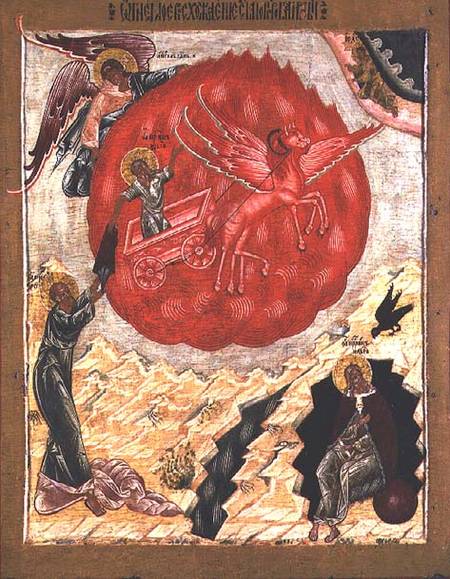
An angel in the flesh and the cornerstone of the prophets, / the second forerunner of the coming of Christ…” With these words the Holy Church glorifies the great Old Testament righteous man who lived 900 years before Christ - the glorious holy prophet of God, Elijah. By his unusually strict ascetic life, he appeared more like an angel than a man.
But why does the Holy Church calls him “a second forerunner of the second coming of Christ”?
This is because, just as before the first coming of Christ in the world, St. John the Baptist appeared “in the spirit and power of Elijah” (Lk1:17), so also before the second coming of Christ on earth the Prophet Elijah himself will appear (see. Malachi 4:5). As we know, he did not die but was lifted up to heaven alive, with his flesh, in a chariot of fire (see para. 4 Kings 2, 11).
The beloved disciple of Christ, St. John the Evangelist tells about this in his marvelous Apocalypse. The Holy Prophet Elijah, along with another Old Testament righteous man - Enoch, who was also taken to heaven alive because he “walked with God” (Genesis 5:24), will appear again in the days of the Antichrist. They will prophesy and turn people away from worshiping Antichrist. The Seer of Mysteries calls them both “witnesses of God”, “two olive trees, and the two candlesticks standing before the God of the earth” (Rev.11:3-11). Both of them - Enoch and Elijah - will prophesy for one thousand two hundred sixty days (or 42 months, or three and a half years), that is, in all the reign of the Antichrist, and will do great signs and miracles to convince people not to recognize or accept the sign of Antichrist on their right hand and forehead (Rev.13:16).
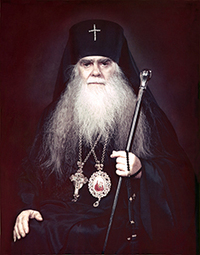 But God’s permission, “the beast that ascendeth out of the bottomless pit”, i.e., the Antichrist himself, “shall make war against them, and shall overcome them, and kill them.” (Rev.11:7).
But God’s permission, “the beast that ascendeth out of the bottomless pit”, i.e., the Antichrist himself, “shall make war against them, and shall overcome them, and kill them.” (Rev.11:7).
It is noteworthy that “they that dwell upon the earth shall rejoice over them, and make merry, and shall send gifts one to another; because these two prophets tormented them that dwelt on the earth” (Rev.11:10).
Why “tormented”?
The people are “tormented” because the prophets will appeal to their conscience. Because they will try to awaken the sleeping conscience - diverting them from worshiping the Antichrist and turning to the true God, to Christ.
It has always been so with the prophets of God. None of them finished their life by a natural death - they were all tortured and killed by the people whom they rebuked for their sinful lives.
The same fate will befall those who do not wish to “keep up with the times”, do not want to take part in the general corruption of morals, and who try to awaken the conscience of others by indicating to them the error or mistake of their chosen the path in life, of their improper approach and conduct.
Such people, who want to keep their conscience pure, the others will hate and seek to destroy in every way - if not physically, then at least mentally.
We do not have the information to assert that the Antichrist has already come, but … only spiritually completely blind people cannot see that what goes mad in the world now is preparing for his speedy arrival and reign. Moreover, his faithful servants work with an extraordinary energy (worthy of a better work). They have already sold him their souls for money and all sorts of earthly goods: For honor, power and domination in human society, for all sorts of carnal pleasure and delight, in order to enjoy them without hindrance or punishment.
From numerous predictions by the ancient Fathers of the Church, we know that the majority of people, of all religions, including our Orthodox faith, and not excepting priests, will enthusiastically accept the Antichrist as their lord and king. They will worship him, and begin to persecute and destroy anyone who opposes the Antichrist.
And while we do not yet see the Antichrist as a particular person, even now a great “sifting” of people is taking place. Some “keep up” with the servants of the coming Antichrist, being bought for money or other earthly goods and recruited into his camp. Others - resolutely avoid, dissociate themselves, and quickly go off away from them, by this arousing the anger and hatred of the former.
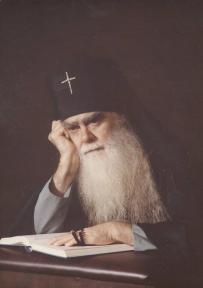 Brothers! It has never been such a cunning time, in which people so excel at deception, falsehood, craftiness and lies. It is necessary to be extremely vigilant, especially attentive and cautious in one’s approach to them, in order to not be tempted by enticing words, and not get entangled in the nets of Antichrist. Do not trust anyone who comes to you with any flattering proposals whatsoever, or with lucrative promises, even if it is a person clothed in spiritual garments, if you know that they are close to some dubious or obviously anti-Christian organisations, if they entertain friendship with the enemies of Christ, and especially - if they receive money from them, whatever the plausible excuse.
Brothers! It has never been such a cunning time, in which people so excel at deception, falsehood, craftiness and lies. It is necessary to be extremely vigilant, especially attentive and cautious in one’s approach to them, in order to not be tempted by enticing words, and not get entangled in the nets of Antichrist. Do not trust anyone who comes to you with any flattering proposals whatsoever, or with lucrative promises, even if it is a person clothed in spiritual garments, if you know that they are close to some dubious or obviously anti-Christian organisations, if they entertain friendship with the enemies of Christ, and especially - if they receive money from them, whatever the plausible excuse.
The time has come now, when more than ever before, you need to carefully distinguish who of the bearers of the high calling of Pastors of the Church of Christ is indeed serving Christ, and who has already sold himself to the servants of the coming Antichrist. By this, instead of serving Christ, they serve the Antichrist. You need to distinguish, in order that you not be found following a wolf - even one dressed in sheep’s clothing - instead of a true Pastor.
Particularly dangerous pastors among such false shepherds are those who preach a need for peace with everyone, under the pretext of “non-condemnation” and “Christian love and forgiveness”. Let us remember that the peace with the Antichrist (as with his servants) is already a betrayal of Christ - and hence enmity against Christ!
For “what fellowship hath righteousness with unrighteousness? and what communion hath light with darkness? And what concord hath Christ with Belial? or what part hath he that believeth with an infidel? “(2 Cor.6:14-15).
Even the smallest flirting with the servants of the Antichrist, and pleasing them with however plausible a purpose - is a crime and will not pass in vain. It is by no mistake that the old Russian proverb says: “Tell me who your friends are, and I will tell you who you are!”
In our evil times, what is most necessary for all of us who wish to remain faithful to Christ the Saviour, is ardent zeal. This is what the holy and glorious prophet of God, Elijah was so famous for. Instead of any compromise with the servants of the Antichrist, we should have a complete irreconcilability toward them, even if we are threatened with temporal death. Let us remember that Enoch and Elijah, after being murdered by the Beast-Antichrist, will be revived to life again “after three days and an half the spirit of life from God entered into them, and they stood upon their feet; and great fear fell upon them which saw them.” (Rev.11:11).
After this Christ our Lord Himself will appear, Who will consume the Antichrist with the “spirit of his mouth, and shall destroy with the brightness of his coming” (2 Thes 2:8). Yet after this, time will be shortened, and the end of this world will come, and the Last Judgement will be opened.
Brothers! If you hear of anyone who relates to preaching on the approach of the Antichrist, the Second Coming of Christ, the end of the world and the Last Judgement with mocking, with an ironic smile on his face, or with anger and irritation, then know that you are dealing with a person who, one way or another, has been drawn in by the servants of antichrist, to involvement in preparation for his speedy arrival and reign on earth. Beware of such people, as destroyers of our holy faith and the Church!
On the Day of Judgement, their “secrets” will be revealed, and all of them, along with the Antichrist and his servants, will receive a just recompense in the “lake of fire burning with brimstone” (Rev.19:20). But for the righteous, such as the holy prophet Elijah, and for all those who did not bow, and did not join the service of the Antichrist, but rather honestly and earnestly opposed him, that eternal blessed life in the “New Jerusalem” will begin, which the seer of mysteries was made worthy to see coming down from God from Heaven (Rev. 21:2).
“Whoever has Having the ears hear, let him hear!” - Amen
Wednesday, July 29, 2015
The holy Great-Martyr Marina speaks
![]() Orthodox Christianity is not some sort of faded and outdated set of traditions.
Orthodox Christianity is not some sort of faded and outdated set of traditions.
On the contrary, God gives those who give Him their hearts and lives great power, intelligence, and a joy that cannot ever fade - it can only grow. All the pleasures of this world become meaningless in the face of this eternal joy:
I do not want anything at all from you! I only want to remain a faithful servant of my Saviour!
So answered the young girl Marina to the ruler, the persecutor of Christians. He offered her a famous and luxurious life, full of every earthly pleasure.
Before her beheading by the sword,15-year old Marina turned to the crowd of spectators and said:
I beseech you, my brethren and friends, as the unworthy handmaiden of the Most High, hearken with understanding to this small exhortation. You know that only one is the true God to be contemplated and worshipped in Father, Son and Holy Spirit. Whoever believes in this triple unity alone is being saved. Therefore, transcend every creation of the visible and sensible world. Elevate your minds and acknowledge only the Father of lights and His Only-Begotten Son and Word, our Lord Jesus Christ, and the All-Holy Spirit. These three persons are one eternal God, almighty and incomprehensible; and by no other name can one be saved.
15000 men cried out “We are also Christians”, and were martyred that same day. The women and children who likewise suffered were uncountable. They all received glory from God and today stand before His throne, praying for us, with their leader, the Great-Martyr Marina.
Monday, July 27, 2015
Video report from pilgrimage to Romania
Our American brothers from the Church of the True Orthodox Christians of Greece recently made a pilgrimage to Romania. The group visited the important sanctuaries of the Old Calendar Orthodox Church of Romania, along with other holy places. Inspired by their interaction with the local True Orthodox Christians, they offer this video report:
